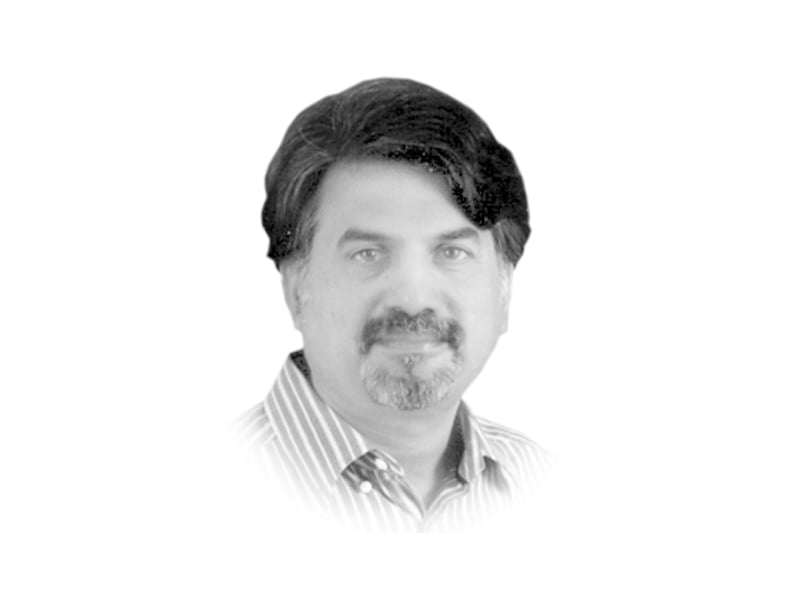
When the PM decided not to settle scores anymore, it was only a matter of time for him to realise that one way or the other, as a political force, the General was finished and the best course of action was to further strengthen and consolidate the relations between his government and the military. For doing so, Musharraf had to be treated as a thing of the past, because as long as he was present and being tried, he was acting as a cause of the civil-military division — this the civil-military authorities could not afford, considering the critical phase of history the country is going through. The positive aspect of the general’s departure is that in the long run, not only the public and media obsession and interest with the general and his trial would diminish, but also the civil-military leadership would more and more look like a ‘us and them’ union rather than ‘us versus them’ division.
History tells us that many former presidents of this country have been subjects of serious allegations and many controversies surrounded them during their time in office (Ayub, Yahya, Zia, Leghari, Ishak Khan and Zardari). However, in case of general Musharraf, unlike the other presidents, his now almost lost political career cannot be attributed to ‘political misdeeds’ but the many errors of political judgements that he committed. For this he can also be forgiven because he was never a politician but a soldier and thus, always lacked the political skills that the politicians acquire through struggle and adversity. Being a commando, toughness was part of his character and he drew a lot of strength from acting strong and sticking to his decisions, no matter how bad they were — military adventure in Kargil, handling of the Lal Masjid issue, forcing the then supreme court justice, Iftikhar Chaudhry, to resign, the NRO and declaring emergency in the country, were political blunders that not only brought a bad name to the country, but also furthered the loss of his popularity and political exit.
Loved, hated, envied and despised — as long as he remained in Pakistan, the media and the public could not take their eyes of him. Now that he has left, he leaves us with the great question — where would he go from here? A man from the past, he was a general who ruled this country through its fortunes and misfortunes during a very difficult period. He was there when the country faced increased US-led western diplomatic and military pressure ‘to do more’. As an all-powerful president at that time, what he did, why he did and how he did it would always remain a matter of great interest to the western world. Considering that the West will remain very interested and as a leader, he would be increasingly sought to discuss and give lectures on his countries past, as well as future.
From here on — it would take astonishing good fortune for the general to make a comeback in politics. If there is one good advice that someone can give to him, it would be: enjoy your retirement days and “participating in the country’s future is something that you may now convince yourself to forget.”
Published in The Express Tribune, March 24th, 2016.
Like Opinion & Editorial on Facebook, follow @ETOpEd on Twitter to receive all updates on all our daily pieces.
1729161093-0/liam-(4)1729161093-0-405x300.webp)












COMMENTS (9)
Comments are moderated and generally will be posted if they are on-topic and not abusive.
For more information, please see our Comments FAQ